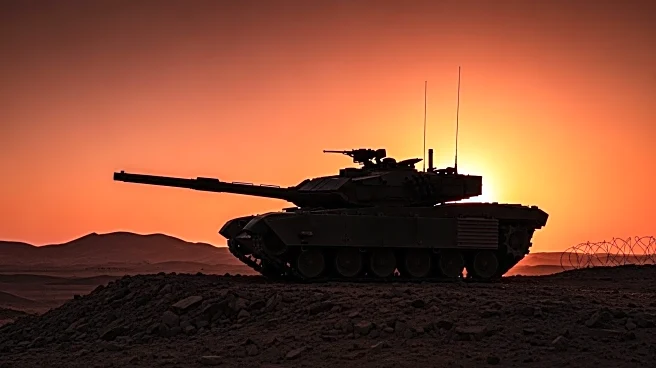What's Happening?
Egypt has issued a threat to deploy military forces, including troops and aircraft, to the Sinai Peninsula in response to the displacement of Gazans. According to a report, Egyptian military officials have outlined plans to manage emergencies, emphasizing that no Palestinian approaching the border should be shot. This development follows heightened tensions in the region, with Egypt taking a proactive stance to address potential security challenges arising from the movement of displaced individuals from Gaza.
Why It's Important?
The potential military escalation by Egypt in the Sinai Peninsula is significant as it could alter the security dynamics in the region. The Sinai Peninsula has been a focal point for various security concerns, including terrorism and cross-border tensions. Egypt's decision to mobilize military resources underscores the seriousness of the situation and the country's commitment to maintaining stability. This move could impact regional relations, particularly with Israel, and influence broader Middle Eastern geopolitics. Stakeholders such as neighboring countries and international organizations may need to reassess their strategies in response to Egypt's actions.
What's Next?
If Egypt proceeds with its military plans, it could lead to increased military presence and operations in the Sinai Peninsula. This may prompt reactions from regional actors, including Israel and Palestinian groups, potentially leading to diplomatic engagements or further tensions. Monitoring the situation closely will be crucial for international observers and policymakers to anticipate and mitigate any adverse outcomes. The unfolding events could also influence future negotiations and peace efforts in the region.
Beyond the Headlines
The ethical implications of military escalation in response to civilian displacement are profound. Egypt's approach to handling displaced Gazans without resorting to violence reflects a nuanced strategy that balances security concerns with humanitarian considerations. This situation highlights the complex interplay between military actions and human rights, raising questions about the responsibilities of states in conflict zones.









